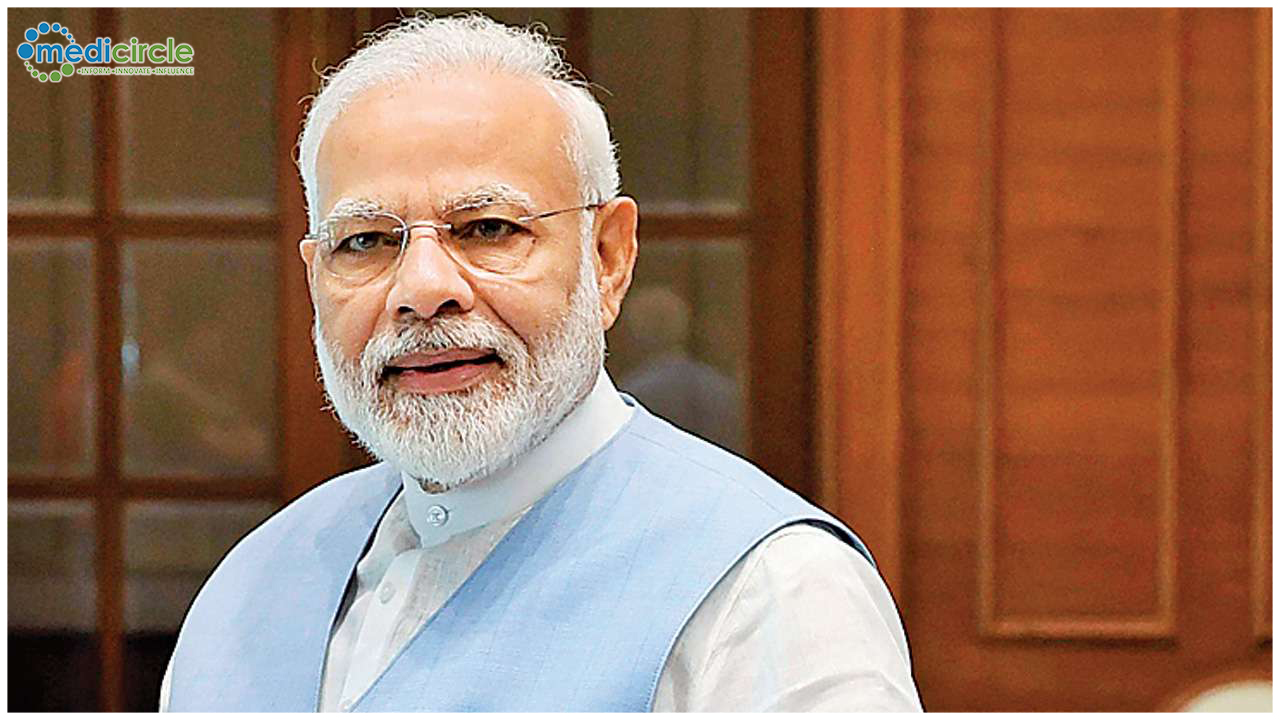Prime Minister Shri Narendra Modi interacted with the leaders of the SAARC countries through video conference to chart out a common strategy in order to combat COVID-19 in the region.
In the spirit of collboration, Prime Minister Modi proposed creation of a COVID-19 Emergency Fund based on voluntary contributions from all the countries, with India making an initial offer of US $10 million for the fund. The fund can be used by any of the partner countries to meet the cost of immediate actions. He informed that India is assembling a Rapid Response Team of doctors and specialists, along with testing kits and other equipment, which will be on stand-by, to be placed at the disposal of the countries, if required.
Prime Minister also offered arranging for online training capsules for the emergency response teams of the neighbouring countries and sharing of software behind India’s Integrated Disease Surveillance Portal to help trace possible virus carriers and the people they contacted. He suggested that existing mechanisms like SAARC Disaster Management Centre can be used to pool in best practises.
He also suggested creation of a common Research Platform to coordinate research on controlling epidemic diseases within the South Asian region. He suggested further brainstorming by experts on the long-term economic consequences of COVID-19, and how best to insulate internal trade and local value chains from its impact.
The leaders thanked the Prime Minister for the proposed initiatives. Prime Minister reiterated the resolve to battle together and said that neighbourhood collaboration by SAARC countries should serve as a model for the world.
Sharing Experience
Prime Minister said the guiding mantra for India has been “prepare, but don’t panic”. He laid down the proactive steps taken, including a graded response mechanism, screening those entering the country, public awareness campaigns on TV, print and social media, special efforts to reach out to the vulnerable groups, ramping up of diagnostic facilities and developing protocols for each stage of managing the pandemic.
He said that India has not only successfully evacuated almost 1400 Indians from different countries but also evacuated some of the citizens of the neighbouring countries in accordance with the ‘neighbourhood first policy’.
President Ashraf Ghani said that the greatest vulnerability of Afghanistan is an open border with Iran. He proposed modelling diffusion patterns, creation of common framework for telemedicine and greater cooperation amongst the neighbouring countries.
President Ibrahim Mohamed Solih thanked the Indian government for the medical assistance from India to deal with COVID-19 cases and for evacuating nine Maldivians from Wuhan. He highlighted the negative impact of COVID-19 on tourism in the country and its impact on the nation’s economy. He proposed closer cooperation between the health emergency agencies of the countries, formulation of economic relief package and long term recovery plan for the region.
President Gotabaya Rajapaksa recommended that SAARC leaders work together to help economy tide over the difficult period. He also recommended establishment of a SAARC Ministerial level group to share best practises and coordinate regional matters on combating COVID-19.
Prime Minister Sheikh Hasina thanked Prime Minister Modi for bringing 23 Bangladeshi students back from Wuhan along with Indian students during the quarantine period. She proposed continuance of the dialogue at technical level through video conference between Health Ministers and Secretaries of the region.
Prime Minister KP Sharma Oli apprised the SAARC leaders of the steps taken by Nepal to combat COVID-19 . He said that the collective wisdom and efforts of all the SAARC nations could help in devising a robust and effective strategy to deal with the pandemic.
Prime Minister Doctor Lotay Tshering said the pandemic does-not follow geographical boundaries, hence it is all the more important for the nations to work together. He said the pandemic will affect the smaller and vulnerable economies disproportionately, talking about the economic impact of COVID-19.
Doctor Zafar Mirza proposed that SAARC Secretariat be mandated to establish a working group of national authorities for health Information, data exchange and coordination in real time. He proposed hosting SAARC Health Ministers’ conference and development of regional mechanisms to share disease surveillance data in real time.

 PM interacts with SAARC leaders to combat COVID-19 in the region. PM proposes set up of COVID-19 Emergency Fund for SAARC countries.
PM interacts with SAARC leaders to combat COVID-19 in the region. PM proposes set up of COVID-19 Emergency Fund for SAARC countries.











.jpeg)


.jpeg)
.jpeg)
.jpeg)
_(1).jpeg)

_(1)_(1)_(1).jpeg)
.jpeg)
.jpeg)
.jpeg)








.jpeg)
.jpeg)